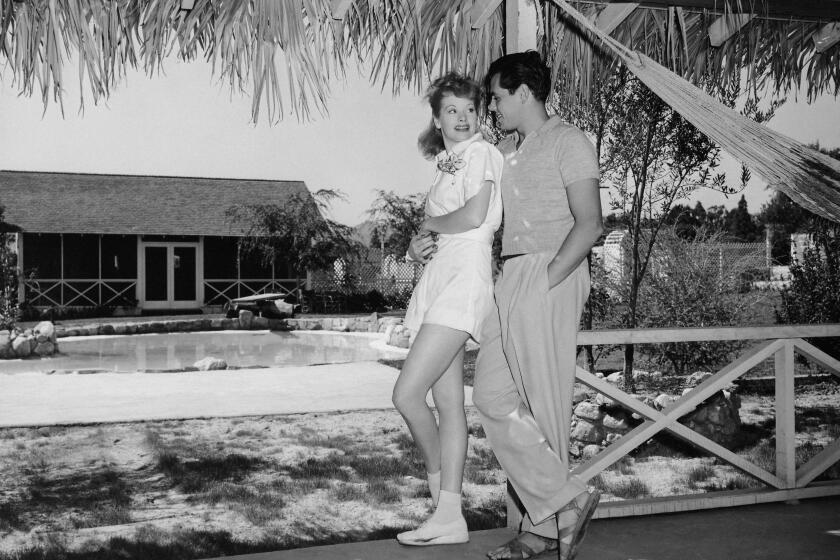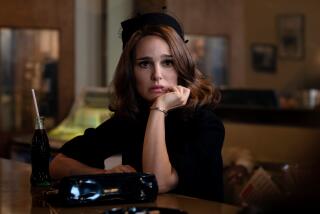- Share via
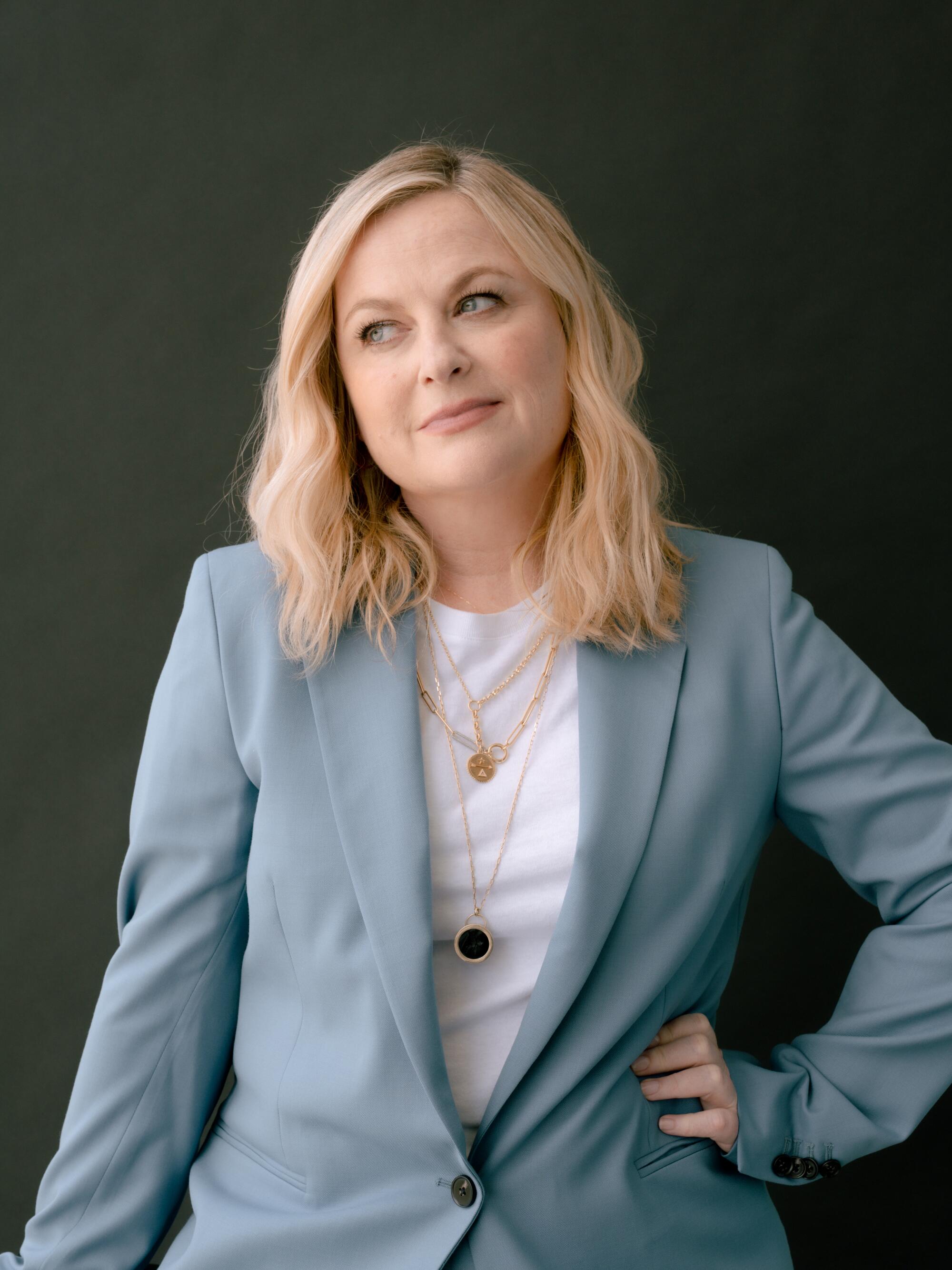
Actor, comedian and director Amy Poehler’s new documentary, “Lucy and Desi,” intimately showcases the spectacularly talented duo of Lucille Ball and Desi Arnaz as mostly told through previously unreleased audiotapes of the pair. With finesse and equal weight given to both sides of the team, Poehler envelops viewers inside the working and private worlds of the trailblazing entertainers.
“There are a million versions of the Lucy and Desi story,” says Poehler, “and part of the excitement of creating the film is that you can focus on what you choose. I wanted to show the world the human beings behind the icons.”
As an “I Love Lucy” fan I — and probably most people — thought I knew a lot about Lucille Ball and Desi Arnaz. What I didn’t know was how traumatized their childhoods were. And it was loud trauma without help. Is this something you knew going into the project or did it surprise you too?
No, like you, I didn’t know. It’s interesting discussing trauma; we look at that word, “trauma,” and it wasn’t a word used in the ‘50s and ‘60s. Lucy and Desi were of a generation where there just wasn’t a lot of discussion about what happens to you; how are you coping? There were no words connected to it. Even the idea of it being labeled as such, how things that happened to you might in some way affect you in your life was an alien concept that wasn’t around. It’s such a new idea.
“It was really about: What would be a new way in or a way that, creatively, felt like the right thing?” Amy Poehler says of her film about the couple.
The fact Desi Arnaz even walked up straight is quite amazing let alone achieving all he did.
Yes, he had to watch his city being burned behind him as he left his home [during the 1933 Cuban Batista revolution] with his dad jailed and his whole family torn apart and come to a country where he didn’t speak the language and had really lost everything in his life. I think people assume because he wasn’t from this country he had some really hardscrabble poor experience growing up but, in fact, he was in a highly privileged family with lots of access and money, and it was instantly gone.
And Lucy?
Lucy had this really hardworking upstate New York childhood [and] then had a family tragedy where her dad died early and her grandfather was made bankrupt by an accident. The reason why it’s important in telling their stories is they made these really big gambles, they really bet on themselves over and over again — and on each other — and that was because they had a sense of what it felt like to lose it all; too many things taken away from them. They also had a really interesting relationship to work and success because of that.
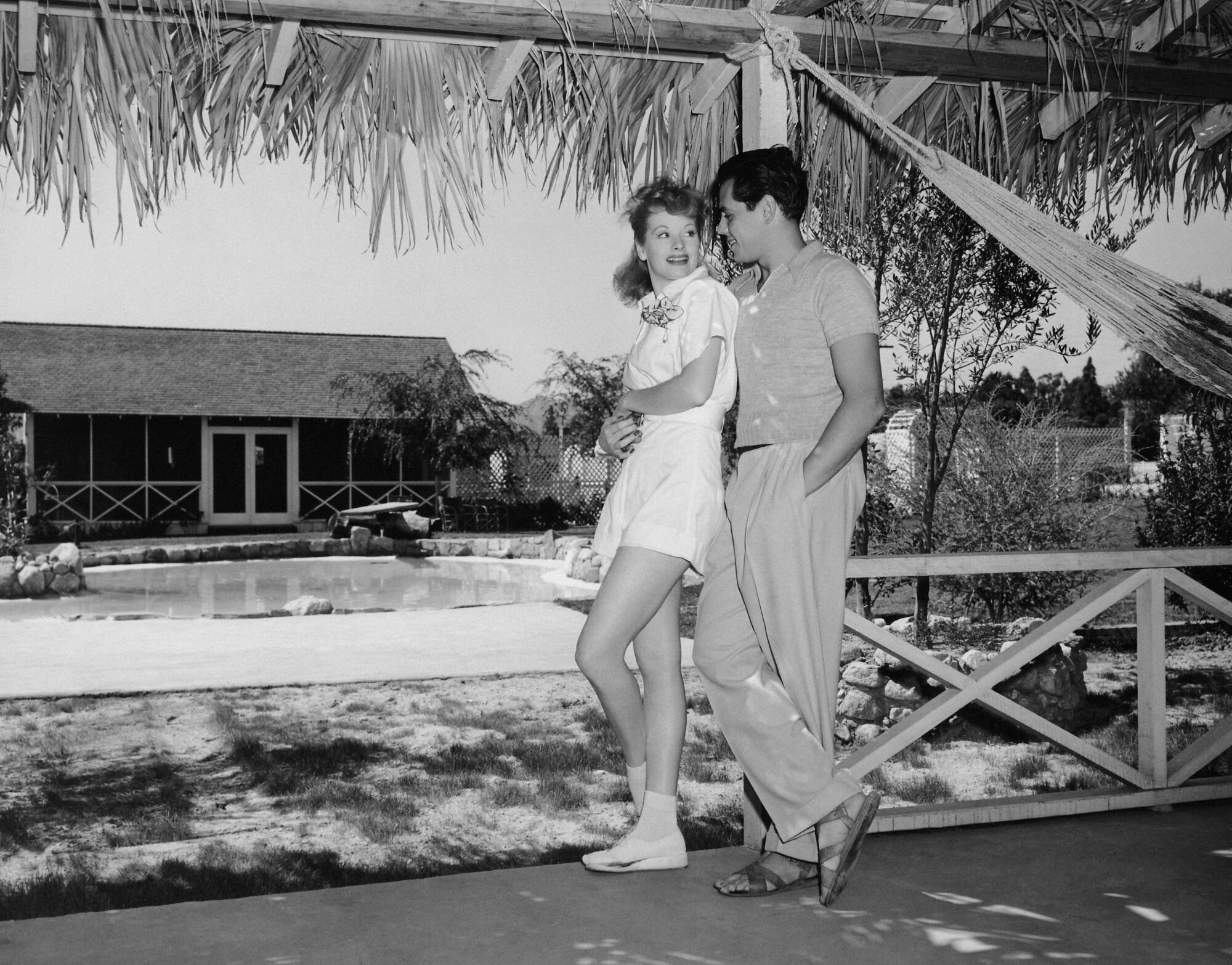
They were obviously both workaholics — another more modern term.
[Laughs] Yes, the idea of a woman like Lucy at that time being in charge in any way was so novel and unique. But, also, Desi in many ways was a complete outsider in this world too, and they both had this incredible journey in their own life where they got access to places where Cuban Americans and women were not allowed inside the room.
You also balanced both their contributions in the film; so many times he’s portrayed as a kind of lucky sidekick. Yet, his achievements were large and lasting in the industry.
I think Desi’s story has been a little lost. My question was: What does a successful partnership look like? I could list all day Lucy and Desi’s long accomplishments and how successful they were, how ahead of their time and how funny and talented, yet it’s also amazing how much they achieved after they were no longer officially “together.” These were two people really ready to do their best work as a pair — and how they continued to work together. Their third act is really interesting to me after “I Love Lucy” is over.
Hearing their own voices on private tapes was so intimate and revealing …
One of the goals with people like Lucy and Desi who became such iconic figures — you kind of forget they were human. I really wanted to keep them alive, and the best way to do that is to hear their voices. I had a more unique position with this documentary. Often, in a documentary space it’s “Hey, there’s this world you don’t know about, let me take you there.” But with Lucy and Desi, they’re so well-known it’s the other side, “Actually, there are two human people here, let me tell you about them.”
There’s the quote from Lucy on tape where she says she went into comedy only because she ran out of other ideas. And how she’s not a particularly funny person. She doesn’t “think” funny.
She came to comedy as an actor; she came in through that door. She studied it very hard and learned her craft, which she was proud of. And that’s part of why the show has had such a long history. A lot of people ask why the show is still so watchable. My answer is: 1) Desi pushed to get it shot on film, so it still looks beautiful. 2) Lucy was an actor who played everything very real and grounded, and so her performance is still so entertaining. There’s never a scene when Lucy isn’t truly in the moment.
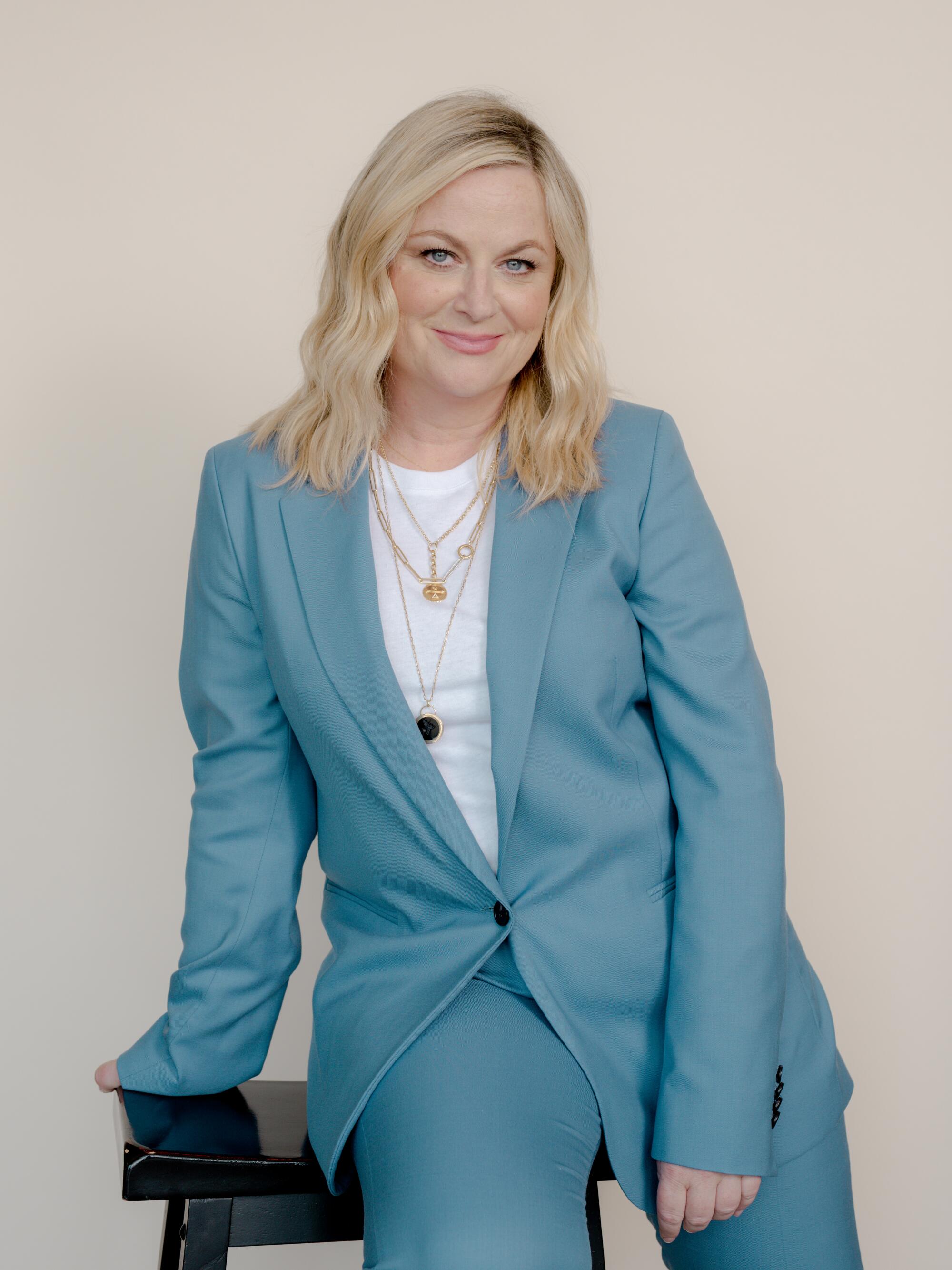
What was it like working with their daughter, Lucie Arnaz Luckinbill?
Lucie gave us a lot of access. I loved working with her because I really like her as a person — I find her really warm and open. It can’t be easy sharing her parents and family constantly with the world. She was able to give us perspective, especially at the end of her parents’ lives where they were and how they felt about each other. I was really grateful she was able to do that. She also wanted us to get in there and tell the story we wanted to tell and I think she’s happy with what we were able to tell.
What’s been the reception to the documentary especially from fans?
It’s been great, especially with Amazon [Prime Video] and the fact they’ve been able to launch it so beautifully into so many homes at once. It’s also not lost on me how we’re all feeling anxiety and a lot of people turn to comedy when they’re feeling particularly isolated — many people turned to “I Love Lucy” during this whole period. Comedy has a way of helping people feel that human connection. It was an incredible project to work on during COVID and to still laugh and think about the big themes of talented comedy partnerships.
More to Read
From the Oscars to the Emmys.
Get the Envelope newsletter for exclusive awards season coverage, behind-the-scenes stories from the Envelope podcast and columnist Glenn Whipp’s must-read analysis.
You may occasionally receive promotional content from the Los Angeles Times.
